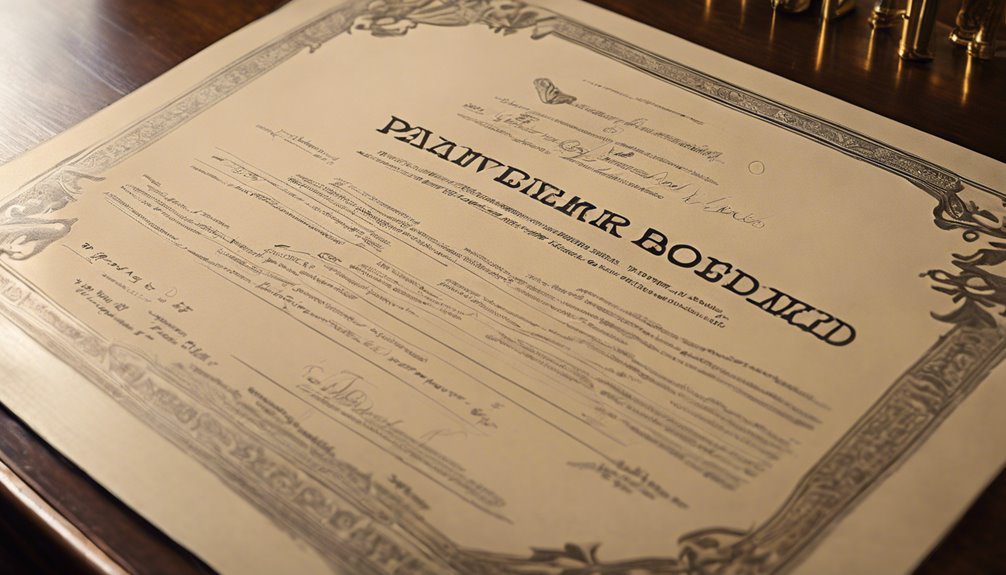If you're considering starting a pawnbroking business in Pennsylvania, understanding the Pennsylvania Pawnbroker Bond is essential. This bond not only safeguards your clients but also ensures you comply with state regulations. Without it, you could face significant legal and financial challenges. You might wonder what it takes to secure this bond, or how it impacts your business's reputation and growth potential. Let's explore these critical aspects to help you navigate this crucial requirement effectively.
Overview of Pawnbroker Bonds

Pawnbroker bonds are essential for anyone looking to operate a pawnbroking business in Pennsylvania. These bonds serve as a form of protection for both you and your clients, ensuring that you adhere to state regulations and maintain ethical standards in your business practices.
When you secure a pawnbroker bond, you're essentially agreeing to operate within the legal framework established by the state, which helps instill trust among your customers.
In Pennsylvania, the bond amount typically reflects the scope of your business and can vary based on local regulations. It's crucial to engage with a reliable surety bond company that understands the specific requirements for pawnbrokers.
This bond not only safeguards the interests of your clients but also protects you from potential financial losses resulting from disputes or unethical practices.
Additionally, a pawnbroker bond is often a prerequisite for obtaining the necessary licenses to operate legally. As you navigate the complexities of starting your business, understanding the requirements and implications of the bond will be vital.
Importance of the Bond
Why is securing a pawnbroker bond so crucial for your business? This bond acts as a safety net, ensuring that you comply with state regulations and protect your customers.
When you have a pawnbroker bond, it shows your commitment to ethical practices, building trust with your clients. Customers often feel more secure knowing their pawnbroker is bonded, which can lead to increased business and a positive reputation in your community.
Moreover, if a dispute arises or a customer feels wronged, the bond provides financial protection. It can cover losses up to the bond's limit, allowing you to resolve issues without significant financial strain. This is especially important in the pawnbroking industry, where trust and reliability are paramount.
Additionally, many lenders and financial institutions require a bond before considering your business for loans or lines of credit. Having the bond in place can open up more opportunities for growth and expansion.
In short, a pawnbroker bond is more than just a requirement; it's an essential tool that safeguards your business, enhances your credibility, and helps you maintain a positive relationship with your customers.
Eligibility Requirements

To qualify for a pawnbroker bond, you need to meet specific eligibility requirements set by your state. First, you must hold a valid pawnbroker license. This license ensures you've completed any necessary training and understand the legalities of the pawnbroker business.
You also need to be at least 18 years old, as this is the minimum age requirement to enter into binding contracts.
Additionally, you'll need a good credit history. Your credit score reflects your financial responsibility and can impact your ability to secure the bond. Insurers typically review your credit report to assess risk before issuing the bond. If you've had recent bankruptcies or significant financial issues, it could complicate your eligibility.
You should also be prepared to provide personal and business information, which may include your Social Security number, tax ID, and business structure details.
Application Process
When you're ready to apply for a pawnbroker bond, you'll need to gather several important documents and information.
Start by collecting your business license, which shows you're legally allowed to operate as a pawnbroker in Pennsylvania. You'll also need to provide proof of your business's physical location, such as a lease agreement or utility bill.
Next, prepare your personal identification documents, like a driver's license or passport, to verify your identity. Some surety companies may require a credit check, so be ready to share your financial history too.
It's helpful to have a detailed business plan outlining your operations, as this can strengthen your application. Additionally, ensure that you comply with local ordinances to avoid any potential issues during the bonding process.
Once you've gathered everything, reach out to a reputable surety bond provider. They'll guide you through the application process, which typically involves filling out a form and submitting your documents.
After reviewing your information, the surety company will assess your risk and determine your eligibility.
Bond Amount and Costs

After submitting your application, you'll need to understand the bond amount and associated costs. In Pennsylvania, the required pawnbroker bond typically amounts to $10,000. This bond serves as a financial guarantee that you'll comply with state laws and regulations governing pawnbroker activities.
The cost of securing this bond isn't a flat fee. Instead, it usually depends on several factors, including your credit score and financial history. Generally, you'll pay a percentage of the total bond amount as a premium, which can range from 1% to 10%. If you have good credit, you can expect to pay on the lower end of that spectrum.
Additionally, you may encounter fees associated with the application process or any required documentation. It's essential to shop around and compare quotes from different surety bond companies, as costs can vary significantly.
Keep in mind that this bond must be renewed periodically, which may incur additional costs. Understanding the bond amount and associated costs will help you budget effectively as you embark on your pawnbroker journey in Pennsylvania.
Renewal and Compliance
Keeping your pawnbroker bond in good standing is essential for maintaining your business operations in Pennsylvania. To ensure compliance, you need to renew your bond before it expires. Typically, bonds are valid for one year, so mark your calendar and start the renewal process early. This will help you avoid any lapses in coverage that could impact your business.
During the renewal process, review the terms of your bond and check for any changes in regulations. You might need to provide updated financial information or documentation to your surety company. Make sure you pay any renewal fees on time, as delays can lead to complications.
Additionally, it's crucial to stay informed about Pennsylvania's pawnbroker laws and regulations. Regularly review any updates from the state to ensure your operations remain compliant.
You should also maintain accurate records of your transactions, as this can help if you ever face an audit or need to demonstrate compliance.
Consequences of Non-Compliance

Failing to comply with Pennsylvania's pawnbroker regulations can lead to serious repercussions that jeopardize your business. If you're found in violation, you might face hefty fines that can quickly add up. These financial penalties can strain your operating budget and impact your bottom line.
Moreover, non-compliance can result in the suspension or revocation of your pawnbroker license. Losing your license means you can no longer operate legally, which could shut down your business entirely. This could also tarnish your reputation in the community, as clients may view you as untrustworthy.
Additionally, non-compliance can lead to legal troubles, including lawsuits from customers or suppliers. These legal battles can be time-consuming and costly, draining both your resources and energy.
Lastly, the stress of dealing with regulatory issues can take a toll on your mental health and personal life. It's crucial to stay informed about the regulations and ensure your business practices align with them. By doing so, you can avoid these consequences and maintain a successful pawnbroking operation in Pennsylvania.
Conclusion
In summary, securing a Pennsylvania Pawnbroker Bond is vital for your business's success and reputation. It not only protects your clients but also helps you comply with state regulations. By understanding the eligibility requirements and navigating the application process, you can ensure your operations run smoothly. Remember, staying compliant and renewing your bond on time is essential to avoid serious legal and financial consequences. Take this step to build trust and grow your pawnbroking business.


